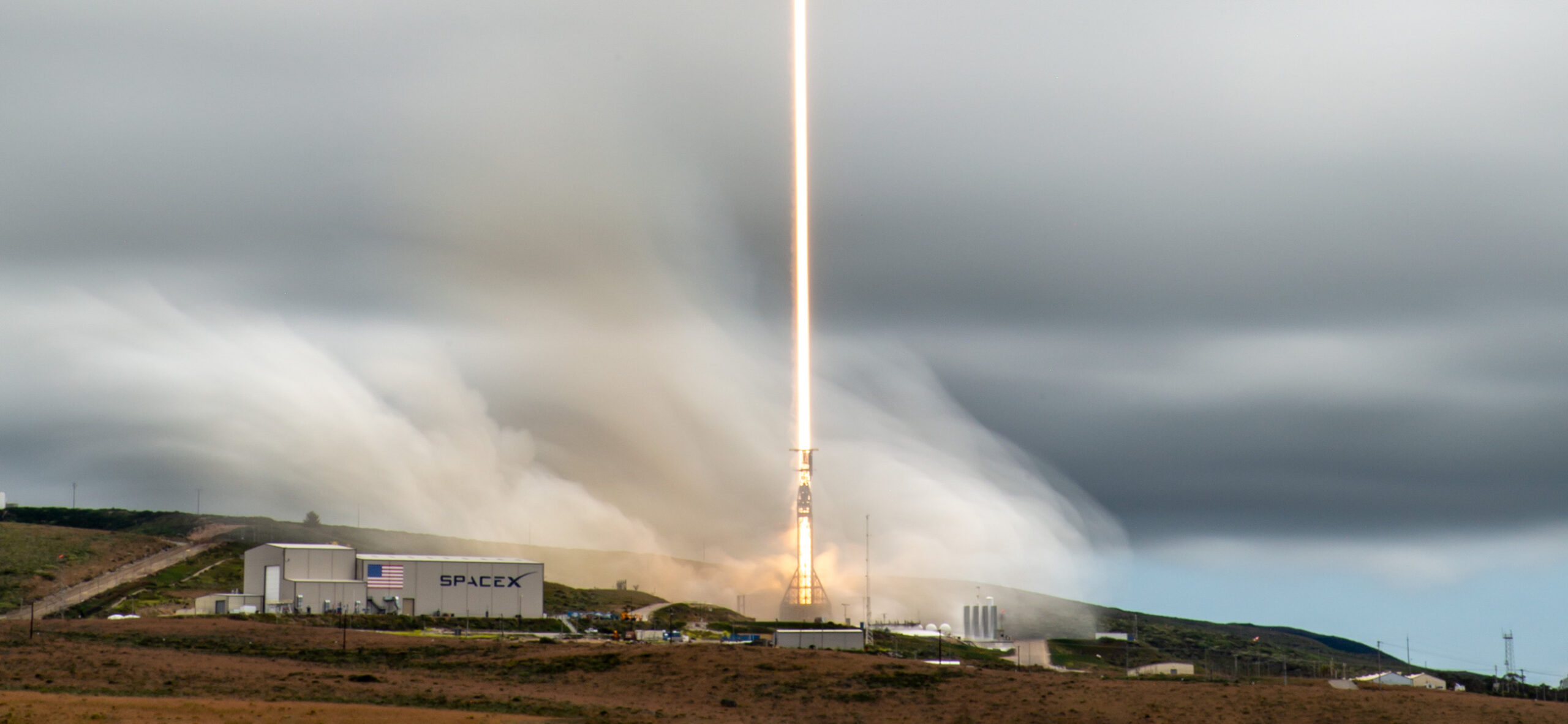SpaceX Delivers 72 Spacecraft to Orbit in Transporter-8 Rideshare Mission

SpaceX launches the Transporter-8 mission on June 12 from Vandenberg Space Force Base in California. Photo: SpaceX
SpaceX delivered 72 spacecraft to orbit on Monday in the Transporter-8 launch, its eighth mission in its dedicated smallsat rideshare program. The Falcon 9 mission launched from Space Launch Complex 4E at Vandenberg Space Force Base in California at 2:35 p.m. PT on June 12.
It was SpaceX’s second launch in one day, after SpaceX launched 52 Starlink satellites for its Low-Earth Orbit (LEO) constellation around 3:00 a.m. from the East coast Monday morning.
The rideshare mission included a number of technology milestones, including Varda Space Industries’ first satellite, W-Series 1, built by Rocket Lab. The spacecraft contains a 120 kg capsule that will produce pharmaceutical products in microgravity and return them to Earth, testing a hypersonic re-entry capsule on the return.
It included the first satellite for a new commercial manufacturer in India, Azista BST Aerospace, called ABA First Runner (AFR). AFR, is an 80 kg satellite built on a modular bus platform and hosts a wide-swath optical remote sensing payload.
The mission launched Earth observation satellites for a variety of customers including Satellogic, with four NewSats Mark-V spacecraft; four third-generation satellites for Iceye; and the third hyperspectral satellite for Orbital Sidekick in the planned GHOSt constellation.
Spire Global had two satellites onboard equipped with optical inter-satellite link payloads to transmit data in space while up to 5,000 kilometers apart. Spire says its optical communications terminal is the smallest on the market, and these satellites follow after an in-orbit technology demonstration where Spire successfully transmitted and detected optical signals between two of its 3U satellites.
Spire also launched Forest-2, a 6U satellite carrying a proprietary thermal-infrared optical payload and data processing unit for OroraTech, which will be used to detect and monitor wildfires across the globe.
Space logistics company Launcher deployed an Orbiter space tug on the mission with customers including Starfish Space, Innova Space, TRL11Inc, Bronco Space, a program out of Cal Poly Pomona university, and Logitech.
Rideshare provider Exolaunch launched 32 satellites on the mission for 11 customers including Spire, Iceye, Swarm Technologies (owned by SpaceX), and the GEI-SAT Precursor methane-monitoring satellite for Satlantis.
Italian space logistics company D-Orbit deployed an ION satellite carrier with satellites and payloads for a number of customers including Kelpie-2, built by AAC Clyde Space to deliver Automatic Identification System (AIS) data to Orbcomm; EPICHyper-2, also built by AAC Clyde Space for Wyvern Inc to deliver hyperspectral data for agricultural uses; NaviLEOTM, a Global Navigation Satellite System (GNSS) receiver developed by SpacePNT; ODIN-DU1, a hosted sensor built by ODIN Space; UKRI SWIMMR-1, an instrument for space weather monitoring for UK Research and Innovation; and two Alba Orbital satellite deployers that will release six PocketQube satellites into orbit.
D-Orbit also hosted Outpost’s first satellite, Mission 1, which will test the company’s avionics system for future returnable missions.
D-Orbit also hosted SpeiSat; a nanosatellite developed by the Polytechnic of Turin and the Italian Space Agency with the help of Tyvak International, which will transmit Pope Francis’s March 2020 coronavirus pandemic prayer in a UHF amateur satellite band.
Turkish IoT startup Hello Space launched its first test pocket satellite, Istanbul.
The Chilean government launched FASat-Delta developed by ImageSat International (ISI) and Tyvak for sovereign Earth observation capabilities.
Australian startup Skykraft launched a prototype satellite for its air traffic management system.